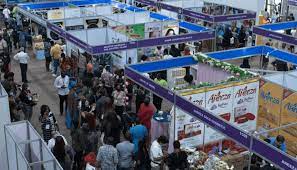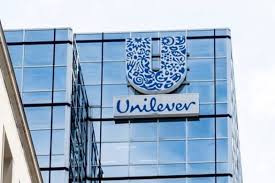Economy
Unveiling Nigeria’s Gold Potentials Through Artisanal, Small Scale Mining

From 2016 to 2020, Nigeria recorded approximately 1.6 million grams. It gold reserve has been estimated to be over 1 million ounces in Osun where detailed exploration and reserve estimation has been done.
Gold in Nigeria was dated back to 1913. Major gold occurrences are found at various locations in the schist belt of the country; Zamfara, Kebbi, Kaduna, Niger, Osun, Kogi, Oyo, Cross River and Kwara states.
Gold mining in Nigeria is predominantly carried out by licenced small-scale miners and informal artisanal miners.
Due to the informal component of gold mining activities, the exploitation of the resources in the country was associated with a lot of illicit activities that gave rise to insecurity.
Other challenges associated with gold mining include loss of revenue due to the government, smuggling of gold products, environmental degradation as well as lack of transparency/ accountability in the gold value and supply chain.
To address all these challenges and for Nigeria to compete with other mining countries globally, Artisanal and Small Scale Mining Department (ASM) was created by the Ministry of Mines and Steel Development (MMSD).
The Presidential Artisanal Gold Mining Initiative (PAGMI) was also initiated with the primary objective to facilitate the formalisation of artisanal and small scale gold miners in Nigeria.
PAGMI was also initiated to facilitate establishment of registered and recognised mineral buying centres to take off the gold produced by ASM, aggregate and refine it to London Bullion Market Association (LBMA) standard while CBN serves as the off taker.
MMSD had also issued two gold refining licences to Kian Smith Limited and Dokia gold and precious metal company to establish, operate and produce gold that meets LBMA standard.
Federal government has also planned to construct gold smelting plant in Kogi for the North Central Zone and a gold souk in Kano from the North West zone.
Similarly, the National Gold Policy, when developed, would serve as an instrument and means by which Nigeria could secure maximum benefits from its gold mining value chains.
The Federal Government in collaboration with the United Nations Industrial Development Organisation (UNIDO)recently unveiled a policy document on gold mining in Nigeria.
This document policy was part of measures to grow revenue, address health challenges associated with gold mining and to attract investors to the mining industry.
UNIDO, some Federal Ministries such as Environment, Health and MMSD jointly unveiled the National Action Plan (NAP) for the Reduction and Eventual Elimination of Mercury Use in the Artisanal and Small-Scale Gold Mining sector in Nigeria.
Mr Jean Bakole, Regional Director and UNIDO Representative to ECOWAS, UNIDO Regional Hub Nigeria, said the policy document was an obligation for Nigeria, as a party under the Minamata Convention and would help drive investments in the mining sector.
He said this plan would provide Nigeria with current data and up-to-date situation analysis of its gold mining which would ultimately appeal to both local and foreign investors.
“More importantly, it has mapped out a way forward for gold mining and its associated mercury management in Nigeria,” he said.
Bakole said the NAP has developed national strategy on gold mining in Nigeria and its associated mercury use by facilitating formalisation and access to finance, among others.
Dr Ochechukwu Ogah, Minister of State, MMSD says Nigeria is blessed with abundant gold enough to address the effect of devaluation of our currency.
Ogah said that Nigeria could use the gold produced to boost its foreign reserve as well.
He said no doubt the gold resources of Nigeria could contribute immensely to the economic diversification of the country but more contributions and efforts from stakeholders were expected.
“We encourage the realisation of the already licenced refineries and welcome more applications from propective investors that want to set up gold refineries in Nigeria.”
He noted that revenue losses due to gold smuggling is humongous because over 95 per cent of local gold sources are from artisanal and small scale operators with difficulties in tracking their operations.
He said that local refining of gold and the proposed export guidelines may help to arrest the challenge.
The Federal government is also making effort to sign MoU with Dubai officials to track smugglers that are diverting Nigeria’s gold worth billions of Naira to Dubai gold souk.
The Minister said that the Federal government was working assiduously to resolve the issues of stigma of fraud, scam and smuggling against the Nigerian native gold sources by the LBMA to optimise earnings from the mineral commodity.
He added that native gold producers that produce in granules or bar form were not registered and the procedure for measuring gold content in all native forms have created uncertainties in the integrity of the local gold market.
Ogah said that Nigeria has put in place policy, legal/regulatory and institutional framework and attractive incentives for the development of its gold and other mineral resources.
The incentive put in place by MMSD for mining investors include exemption from customs and import duties for plant, machinery and equipment for mining operations and three to five years tax holiday as applicable; and tax concessions.
Others are Extension of infrastructure such as roads and electricity to mining sites as well as expatriate quota and resident permits in respect of expatriate personnel engaged by mining companies.
***If used please credit the writer and the News Agency of Nigeria (NAN).
Economy
Seplat Energy Pays $2bn Tax to FG in 10 Years

Seplat Energy, an independent indigenous energy company, on Tuesday, said it had paid two billion dollars tax contribution to the Federal Government of Nigeria since its listing on the Nigerian Exchange Ltd.(NGX) in 2014.
Mr Roger Brown, Chief Executive Officer(CEO), Seplat Energy, revealed this while delivering a speech at the Closing Gong ceremony in Lagos.
The event was to commemorate the company’s 10 years anniversary of dual listing on the Premium Board of the Nigerian EExchange Ltd.
(NGX) and the Main Market of the London Stock Exchange (LSE).Brown stated that the oil and gas company, Seplat, also contributed 2.8 billion dollars as tax to the federal government over the past 13 years, after its establishment in 2009.
He explained that the company paid 1.54 billion dollars as royalty to the government, 329 million dollars as Petroleum Profits Tax, 273 million dollars as Value Added Tax, and 259 million dollars as Witholding Tax.
According to him, the energy firm also paid a tax of 276 million dollars to the Nigerian Delta Development Commission (NDDC) and others as well as 126 million dollars as Pay-As-You-Earn(PAYE).
The CEO stated that at post Initial Public Offering(IPO) of the firm, it generated 1.7 billion dollars in Free Cash Flow(FCF) and invested 1.6 billion dollars in Capex.
He also said that the company had paid dividends worth 575 million dollars between 2014 when it became listed and the financial year ended 2023.
Brown noted that the business of the energy firm continued to generate strong cashflows, reflected in its strong FCF and NCFO generation.
He said: “Similarly, we have generated a cumulative 3.3 billion dollars in net operating cash flow post IPO.
“Our strong cash flow generation has supported our ambitions to expand our business, which has seen us spend an aggregate of 1.6 billion dollars in capital expenditure.
“In over 10 years, we invested 57 million dollars in community projects on health, education and empowerment as strong commitment to community development.
“As a leading supplier of gas to Nigeria’s domestic Gas-To-Power Market, at times Seplat gas powered 20 to 30 of Nigeria’s domestic grid in 2023.”
He expressed delight over the feat, reiterating Seplat Energy’s commitment to leading Nigeria’s energy transition.
According to him, the power of indigenous companies is to bring growth and prosperity to their home countries and the people.
“One example of how Seplat Energy is making an enduring difference to Nigeria and host communities where we operate is that nearly 50 million dollars had been invested by our Joint Venture partnerships in communities since our inception to date,” Brown said.
“Truly, Seplat Energy has delivered significant value by enhancing strategic, operational and financial achievements in 10 years as a listed company,” he added.
In his comments, Mr Temi Popoola, Chief Executive Officer (CEO), NGX Group, emphasised the significance of Seplat Energy’s decade of dual listing.
He said, “If we were to look back to our market and tried to find landmarks, the last major landmark you will find in the last ten years is this transaction that we are celebrating today, and the market is very grateful for that.”
Congratulating Seplat Energy on this milestone, in his welcoming remarks, Alhaji Umaru Kwairanga, NGX Group Chairman, highlighted the importance of partnerships between the NGX and companies like Seplat Energy in driving economic growth and development.
He stated that “Seplat’s journey symbolises resilience, innovation, and a commitment to excellence, making them a beacon of corporate governance and operational expertise.
“Seplat Energy has emerged as a leading indigenous energy company, deeply integrated into Nigeria’s economic landscape and the NGX Group remains committed to supporting companies like Seplat Energy as they drive economic growth and contribute to our nation’s prosperity.”
Reflecting on the significance of the decade of dual listing, Mr Udoma Udo Udoma, Board Chairman, Seplat Energy, remarked, “Seplat Energy is committed to driving Nigeria’s transition to sustainable and affordable energy, harnessing its power to improve lives by transforming the economy.
“We have ambitious goals. We are investing in Nigeria. We will support the federal government’s energy transition policy, and we will partner with FG in whatever area they want us to do.
“That is our commitment. We will grow Seplat while also maintaining the highest standard of corporate governance.”
Also commending Seplat Energy on the decade of listing, Mr Jude Chiemeka, Acting CEO, NGX, stressed the importance of the capital market in helping companies raise funds and create wealth for all.
Chiemeka said, “Seplat Energy was listed at N576 at listing and yesterday it closed at 3,370, which is an increase of over 484 per cent.
“The figures show that in the last 10 years, the company has paid out 575 million dollars in dividend payments to shareholders in Nigeria and London where they are also listed.
“So, this company has given investors a huge opportunity to really participate in wealth creation.
“Reports show that Nigeria would be among the top 20 countries in the next 25 years, and I think Seplat is poised to be one of the institutions driving growth, prosperity, and inclusion in our nation.”
Also, gracing the Closing Gong ceremony was Sen. Heineken Lokpobiri, Minister of State, Petroleum Resources (Oil), who commended the company on it laudable achievements.
“I am happy to be part of today’s celebration and Seplat’s exceptional performance in the last ten years and as Minister of State, Petroleum Resources,
“I assure you that we will partner with Seplat to expand their investments, not only for the benefit of its shareholders, but also for Nigeria.
“The least the government can do anywhere in the world is to create an environment where companies like Seplat continue to thrive.”(NAN)
Economy
34 States Shunned 35th Enugu Int’l Trade Fair

No Fewer than 34 states in the country failed to honour invitation to attend the just-concluded 35th Enugu International Trade Fair.
Reports says that only the Federal Capital Territory (FCT), Abuja; Ebonyi State and the host state, Enugu State, graced the 11-day international goods, services and idea showcasing fiesta.
The fair, which began on April 5 and ended on Monday, April 15, was themed: “Promoting made-in-Nigeria products for global competitiveness.
”Reacting, the Director-General of Enugu Chamber of Commerce, Mr Uche Mbah, said that the chamber followed due diligence in the invitation of all states to the fair.
Mbah noted that official letters were sent and official follow-up on the letters were made to ensure their presence and availability.
According to him, “we did everything to get them to add colour and increase the showcasing of products from different parts of the country and their investment viability.
“We did put in spirited efforts to see that all states participated, as most of them do previously.
“But it is unfortunate that many did not respond after receiving official letters, phone calls and interpersonal follow-ups were made.
“We got clear assurances from Kano State but they did not show up.
“We pushed harder to get Abia State but in the end, we were told that the governor did not approve,” he said.
Reports says that over 100 organisations were at the fair, which included: over 50 private companies as well as over 45 Federal and State government ministries, agencies and departments. (NAN)
Economy
Nigeria’s Inflation Hit 33.20% in March, says NBS

The National Bureau of Statistics (NBS) says Nigeria’s headline inflation rate increased to 33.20 per cent in March 2024.
The NBS said this in its Consumer Price Index (CPI) and Inflation Report for March, which was released in Abuja on Monday.
According to the report, the figure is 1.50 per cent points higher compared to the 31.
It said on a year-on-year basis, the headline inflation rate in March 2024 was 11. 16 per cent higher than the rate recorded in March 2023 at 22.04 per cent.
In addition, the report said, on month-on-month basis, the headline inflation rate in March 2024 was 3.02 per cent, which was 0.10 per cent lower than the rate recorded in February 2024 at 3.12 per cent.
“This means that in March 2024, the rate of increase in the average price level is less than the rate of increase in the average price level in February 2024.”
The report attributed the increase in the headline index for March 2024 on a year-on-year basis and month-on-month basis to increase in some goods and services at the divisional level.
It said these increases were observed in food and non-alcoholic beverages, housing, water, electricity, gas, and other fuel, clothing and footwear, and transport.
Others, it said, were furnishings, household equipment and maintenance, education, health, miscellaneous goods and services, restaurants and hotels, alcoholic beverage, tobacco and kola, recreation and culture, and communication.
It said the percentage change in the average CPI for the 12 months ending March 2024 over the average of the CPI for the previous corresponding 12-month period was 27.13 per cent.
“This indicates a 6.76 per cent increase compared to 20.37 per cent recorded in March 2023”, it said.
The report said the food inflation rate in March 2024 increased to 40.01 per cent on a year-on-year basis, which was 15.56 per cent higher compared to the rate recorded in March 2023 at 24.45 per cent.
“The rise in food inflation on a year-on-year basis is caused by increases in prices of Garri, Millet, Akpu (uncooked fermented, which are under bread and cereals class), Yam Tuber, and Water Yam.
“Others are Dried Fish Sadine, Mudfish Dried, Palm Oil, Vegetable Oil, Beef Feet, Beef Head, Liver, Coconut, Water Melon, Lipton Tea, Bournvita, and Milo”, NBS said.
It said on a month-on-month basis, the food inflation rate in March was 3.62 per cent, which was a 0.17 per cent decrease compared to the rate recorded in February 2024 at 3.79 per cent.
“The fall in food inflation on a month-on-month basis was caused by a decrease in the average prices of Guinea corn flour, Plantain Flour etc (under Bread and Cereals class); Yam, Irish Potato, and CocoYam.
“Others are Titus fish, Mudfish Dried, Lipton, Bournvita, and Ovaltine”, it said.
The report said that “all items less farm produce and energy’’ or core inflation, which excludes the prices of volatile agricultural produce and energy, stood at 25.90 per cent in March on a year-on-year basis.
“This increased by 6.26 per cent compared to 19.63 per cent recorded in March 2023.’’
“The exclusion of the PMS is due to the deregulation of the commodity by removal of subsidy.”
It said the highest increases were recorded in prices of bus journey within the city, actual and imputed rentals for housing, consultation fee of a medical doctor, etc.
The NBS said on a month-on-month basis, the core inflation rate was 2.54 per cent in March 2024.
“This indicates a 0.37 per cent increase compared to what was recorded in February 2024 at 2.17 per cent.”
“The average 12-month annual inflation rate was 22.26 per cent for the 12 months ending March 2024, this was 5.04 per cent points higher than the 17.22 per cent recorded in March 2023”, it said.
The report said on a year-on-year basis in March 2024, the urban inflation rate was 35.18 per cent, 12.11 per cent higher compared to the 23.07 per cent recorded in March 2023.
The report said on a year-on-year basis in March 2024, the rural inflation rate was 31.45 per cent, which was 10.37 per cent higher compared to the 21.09 per cent recorded in March 2023.
“On a month-on-month basis, the rural inflation rate was 2.87 per cent, which decreased by 0.20 per cent compared to February 2024 at 3.07 per cent’’, it said.
On states’ profile analysis, the report showed that in March, all items inflation rate on a year-on-year basis was highest in Kogi at 39.97 per cent, followed by Bauchi at 38.34 per cent, and Kwara at 38.10 per cent.
It, however, said the slowest rise in headline inflation on a year-on-year basis was recorded in Borno at 25.78 per cent, followed by Benue and Taraba at 28.12 per cent, and Katsina at 28.32 per cent.
The report, however, said in March 2024, all items inflation rate on a month-on-month basis was highest in Zamfara at 3.90 per cent, followed by Abia at 3.89 per cent, and Ondo at 3.75 per cent.
“Borno at 1.46 per cent, followed by Yobe at 1.84 per cent and Adamawa at 1.85 per cent recorded the slowest rise in month-on-month inflation”, NBS said.
The report said on a year-on-year basis, food inflation was highest in Kogi at 48.46 per cent, followed by Kwara at 46.18 per cent, and Akwa Ibom at 45.18 per cent.
“Nasarawa at 33.76 per cent, followed by Borno at 34.28 per cent and Bauchi at 34.38 per cent recorded the slowest rise in food inflation on a year-on-year basis’’, it said.
The report, however, said on a month-on-month basis, food inflation was highest in Abia at 5.17 per cent, followed by Cross River at 5.14 per cent, and Bayelsa at 4.75 per cent.
“Cross River stood at 1.59 per cent, followed by Yobe at 2.08 per cent and Adamawa at 2.12 per cent, recorded the slowest rise in inflation on a month-on-month basis”, it said. (NAN)






























